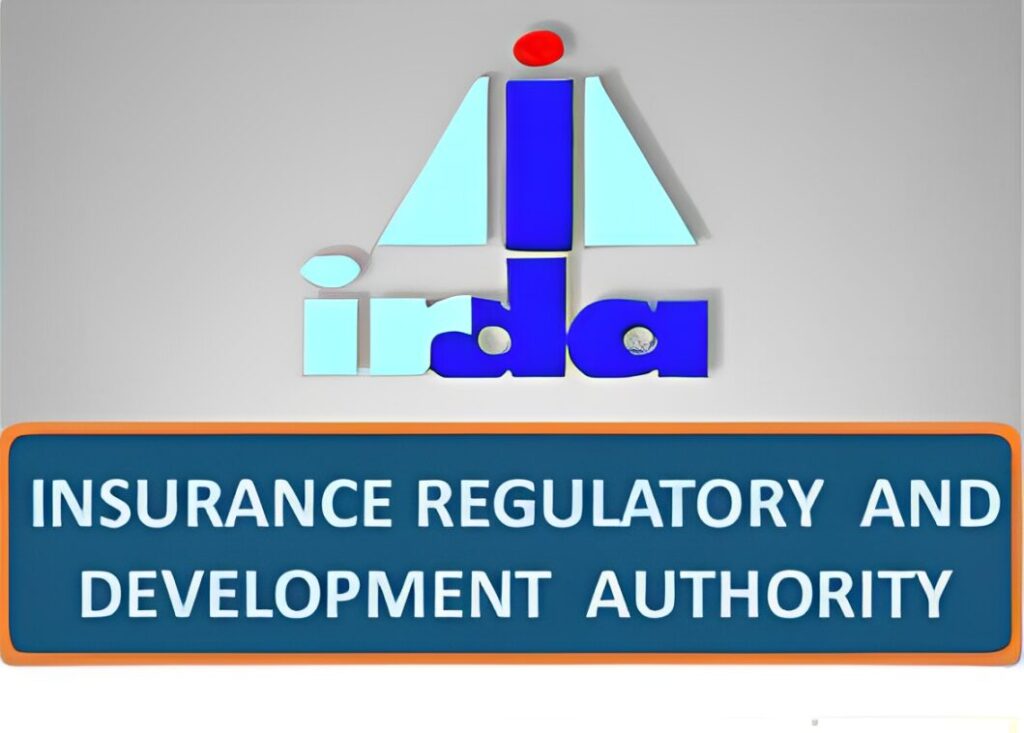IRDAI Registration
The Insurance Regulatory and Development Authority of India (IRDAI) is the regulatory body governing the insurance sector in India. If you are looking to IRDAI Registration in Delhi. it typically involves the following steps. contact us now.

Comprehensive Guide to IRDAI Registration in Delhi for Insurance Agents
Welcome to our comprehensive guide on IRDAI Registration in Delhi for insurance agents, an essential step towards establishing a career in the insurance industry in India. The Insurance Regulatory and Development Authority of India (IRDAI) oversees the regulation and supervision of insurance activities in the country, ensuring consumer protection, market stability, and compliance with regulatory standards. IRDAI registration for insurance agents is a crucial requirement mandated by the regulatory authority to uphold professionalism, ethical conduct, and competency in the insurance sector.
Role and Responsibilities of Insurance Agents: Insurance agents serve as intermediaries between insurance companies and customers, helping individuals and businesses assess their insurance needs, select appropriate insurance products, and facilitate the purchase of insurance policies. They play a pivotal role in promoting insurance awareness, educating clients about insurance coverage, and assisting in claims settlement processes.
Importance of IRDAI Registration: IRDAI registration validates the qualifications, competence, and integrity of insurance agents, ensuring adherence to regulatory norms, ethical standards, and consumer protection guidelines. Registered insurance agents gain legal recognition, credibility, and authorization to engage in insurance-related activities in compliance with regulatory requirements.
Eligibility Criteria for IRDAI Registration
To become a registered insurance agent with IRDAI, individuals must fulfill certain eligibility criteria, including:
Educational Qualifications: Minimum educational qualifications prescribed by IRDAI, such as a bachelor’s degree or equivalent from a recognized institution.
Training Requirements: Completion of pre-licensing training programs accredited by IRDAI, covering topics such as insurance fundamentals, product knowledge, sales techniques, and regulatory compliance.
Examination Clearance: Successful completion of the mandatory pre-licensing examination conducted by IRDAI or its authorized examination bodies to assess knowledge, competency, and understanding of insurance principles, laws, and practices.
Character and Integrity: Demonstration of good character, integrity, and ethical conduct, free from any criminal record, disciplinary actions, or adverse findings by regulatory authorities.
Documentation Required for IRDAI Registration
Application Form: Completion of the prescribed application form for IRDAI Registration in Delhi providing accurate personal and professional information, contact details, and relevant disclosures.
Educational Certificates: Submission of copies of educational certificates, degrees, or diplomas attesting to the fulfillment of minimum educational qualifications specified by IRDAI.
Training Certificates: Provision of certificates or proof of completion of pre-licensing training programs accredited by IRDAI, indicating compliance with mandatory training requirements.
Examination Results: Documentation of examination clearance, including copies of examination hall tickets, scorecards, or certificates issued by IRDAI or its authorized examination bodies.
Identity Proof: Submission of valid identity proof documents such as Aadhar card, passport, voter ID card, or PAN card, establishing the identity and citizenship status of the applicant.
Address Proof: Furnishing of address proof documents such as utility bills, bank statements, rental agreements, or voter ID cards, confirming the residential address of the applicant.
Application Process for IRDAI Registration
Submission of Application: Completion and submission of the IRDAI Registration in Delhi application form along with the requisite documentation to the designated authority or IRDAI’s regional offices.
Verification and Scrutiny: Verification and scrutiny of the application and supporting documents by IRDAI officials to ensure completeness, accuracy, and compliance with regulatory requirements.
Background Verification: Conducting background checks, including verification of educational credentials, training completion, examination clearance, and character references to assess the eligibility and suitability of the applicant.
Issuance of Registration Certificate: Upon successful verification and approval, issuance of the registration certificate by IRDAI, acknowledging the registration of the insurance agent and granting authorization to conduct insurance business.
Obligations and Responsibilities of Registered Insurance Agents



Registered insurance agents are required to fulfill certain obligations and responsibilities prescribed by IRDAI, including:
Compliance with Regulatory Requirements: Adherence to IRDAI guidelines, code of conduct, and regulatory requirements governing insurance agents’ conduct, ethics, and professional standards.
Continuing Education and Training: Participation in continuing education and training programs to enhance knowledge, skills, and competencies relevant to insurance products, market trends, and regulatory changes.
Client Relationship Management: Building and maintaining strong client relationships, providing accurate information, transparent communication, and personalized service to meet client needs and expectations.
Disclosure of Information: Disclosure of relevant information, terms, and conditions related to insurance products, premiums, coverage limits, exclusions, and claims processes to enable informed decision-making by clients.
Ethical Conduct and Integrity: Demonstrating integrity, honesty, and fairness in all interactions with clients, insurers, and stakeholders, avoiding conflicts of interest, misrepresentation, or unethical practices.
Benefits of IRDAI Registration for Insurance Agents
Legal Authorization and Recognition: Official recognition and authorization by IRDAI to engage in insurance-related activities, enhancing credibility, trustworthiness, and market acceptance.
Access to Insurance Products: Authorization to sell a wide range of insurance products offered by licensed insurers, including life insurance, general insurance, health insurance, and specialized insurance solutions.
Professional Development Opportunities: Access to professional development programs, seminars, workshops, and industry events facilitated by IRDAI and insurance companies to enhance knowledge, skills, and networking opportunities.
Earning Potential and Incentives: Opportunity to earn competitive commissions, incentives, and performance-based rewards based on sales performance, client retention, and business growth.
Career Advancement and Growth: Potential for career advancement, recognition, and growth opportunities within the insurance industry through continuous learning, skill development, and performance excellence.
In conclusion, IRDAI registration for insurance agents is a pivotal milestone in establishing a successful and rewarding career in the insurance industry. By fulfilling eligibility criteria, submitting required documentation, and adhering to regulatory guidelines, aspiring insurance agents can obtain official recognition, credibility, and authorization to represent licensed insurers, serve clients’ insurance needs, and contribute to the growth and development of the insurance sector in India.
We hope this comprehensive guide has provided valuable insights and information to help you navigate the IRDAI registration process effectively and embark on a fulfilling journey as a registered insurance agent. For further assistance, guidance, or inquiries regarding IRDAI registration, please feel free to reach out to us, and we’ll be delighted to assist you in achieving your professional aspirations and goals in the dynamic and rewarding field of insurance.
Different Types of Insurance Businesses- IRDA Licence
Life Insurance Companies: Life insurance companies offer policies that provide financial protection to policyholders and their beneficiaries in the event of death, disability, or other life-related risks. IRDAI issues licenses to life insurance companies to operate in India. These companies offer various types of life insurance products such as term insurance, whole life insurance, endowment plans, ULIPs (Unit Linked Insurance Plans), and pension plans.
General Insurance Companies: General insurance companies provide non-life insurance coverage for a wide range of risks, including health, motor vehicles, property, travel, and liability. IRDAI licenses general insurance companies to offer non-life insurance products to individuals, businesses, and other entities. General insurance companies play a crucial role in safeguarding assets, mitigating risks, and providing financial protection against unforeseen events.
Health Insurance Companies: Health insurance companies specialize in offering insurance coverage for medical expenses incurred by policyholders due to illness, injury, hospitalization, and other healthcare-related costs. IRDAI grants licenses to health insurance companies to provide health insurance products and services, including individual health insurance, family floater plans, group health insurance for employers, and specialized health coverage such as critical illness insurance and maternity benefits.
Reinsurance Companies: Reinsurance companies operate as specialized insurers that provide coverage to primary insurance companies against large or catastrophic risks. IRDAI licenses reinsurance companies to operate in the Indian market, allowing them to offer reinsurance services to primary insurers and reinsurers globally. Reinsurance companies help primary insurers manage risk exposure, improve solvency, and enhance underwriting capacity.
Insurance Brokers: Insurance brokers act as intermediaries between insurance buyers (individuals or businesses) and insurance companies, helping clients assess their insurance needs, compare insurance products, and negotiate coverage terms and premiums. IRDAI issues licenses to insurance brokers, allowing them to offer brokerage services, insurance advice, policy placement, and claims assistance to clients across various insurance segments.
Insurance Agents: Insurance agents represent insurance companies and market insurance products directly to customers. They play a crucial role in promoting insurance awareness, educating clients about insurance options, and facilitating the purchase of insurance policies. IRDAI licenses insurance agents after they meet specified eligibility criteria, complete mandatory training, and pass the pre-licensing examination.
Third-Party Administrators (TPAs): Third-Party Administrators (TPAs) are entities that provide administrative and claims processing services to insurance companies, employers, and policyholders. IRDAI licenses TPAs to offer services such as claims adjudication, policy administration, network management, and customer support for health insurance policies.
Surveyors and Loss Assessors: Surveyors and loss assessors evaluate the extent of damage or loss in insurance claims, especially in cases of property, marine, engineering, and motor insurance. IRDAI licenses surveyors and loss assessors based on their qualifications, experience, and adherence to regulatory guidelines.
In conclusion, the insurance industry in India encompasses a diverse range of businesses, each requiring specific licenses from IRDAI to operate legally and effectively. By obtaining the necessary licenses and adhering to regulatory standards, insurance businesses contribute to the growth, stability, and development of the insurance sector while fulfilling the insurance needs of individuals, businesses, and society at large.
